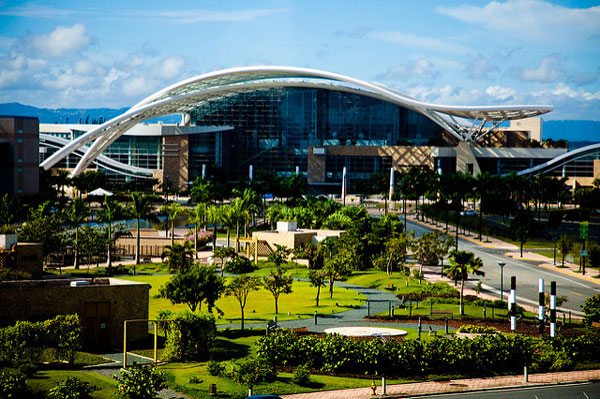
March 6, 2018; Washington Post
It is hard to overstate the degree of devastation in Puerto Rico. The storm may have hit last September, but the effects are ongoing. This week, NPQ has run a series of stories by Cyndi Suarez on rebuilding efforts, as seen in today’s feature. To be sure, a lot of progress is being made. But the challenges remain immense. As Arelis Hernández writes in the Washington Post,
Just this week, a power outage put nearly 900,000 residents in and around the capital city of San Juan in the dark and without water—again. Tens of thousands in Puerto Rico have had no electricity since the hurricane struck five months ago, and the US Army Corps of Engineers estimates that 1 in 10 customers still won’t have it as of the end of March. The island’s bankrupt public utility has struggled to restore power amid contracting scandals, materiel shortages and intermittent blackouts, and the biggest restoration contractor, Fluor Corp., confirmed that it is pulling out of Puerto Rico in the next several weeks after reaching the funding limit of its $746 million contract.
The situation leaves many Puerto Ricans with a difficult choice—namely, whether to move to the US mainland or stay and struggle. So far, the overwhelming majority are staying, but hundreds of thousands are leaving too. As many NPQ readers will recall, a similar dynamic played out in New Orleans after Hurricane Katrina.
Hernández tells the story of singer Ramoncito “El Andino” Rodríguez, age 78, who, “reluctantly abandoned Puerto Rico after several feet of floodwater spilled into his home during Hurricane Maria in September, destroying his instruments, albums and handwritten compositions.” Rodríguez just returned to Puerto Rico, but many others have not been able to do so.
Hernández notes that the Puerto Rican government’s best guess is that “by the end of 2018, 200,000 more residents will have left the US territory for good, moving to places such as Florida, New York, Texas, Pennsylvania, New Jersey, and New England. It would mean another drop of more than five percent in the island’s population.”
This, Hernández adds, comes on top of outmigration resulting from the economic crisis from which Puerto Rico suffered before the storm. The island, one may recall, had declared a form of bankruptcy early last May, more than four months before Maria hit. The bankruptcy itself was the product of a decade-long economic retrenchment. As Hernández writes, “Nearly 500,000 people left Puerto Rico for the mainland during the past decade…pushing the stateside Puerto Rican population past the number living on the island last year—an estimated 3.3 million.”
Sign up for our free newsletters
Subscribe to NPQ's newsletters to have our top stories delivered directly to your inbox.
By signing up, you agree to our privacy policy and terms of use, and to receive messages from NPQ and our partners.
Longer-term, the Puerto Rican government estimates that the island’s population could drop below 3 million within a decade. Were that to occur, such a 10 percent decline would be “in line with what researchers expect to see in war zones or what happened during the Irish potato famine in the mid-1800s,” writes Hernández.
Hernández notes that “nearly half of the island’s population lives in poverty, and household income is about $18,000 a year, less than half that of Mississippi, the country’s poorest state.” Puerto Rican economist José Joaquín Villamil indicates that unemployment and depressed wages have been the leading driving forces that have encouraged working-age Puerto Ricans to head for the US mainland, nearly half of whom are younger than 24.
“Despite the outlook,” however, Hernández also observes that “some Puerto Ricans who left immediately after the hurricane have returned to their homes and businesses, trying to salvage the lives they had here.”
Hernández profiles Carla López, who initially thought she would have to relocate her pop-up retail incubator, Santurce Pop, to central Florida. But after a short stint in Orlando, López and her husband decided to return. The couple, writes Hernández, “own a building in San Juan that provides affordable space to local entrepreneurs to build their small businesses, most of which specialize in locally sourced products and services
Hernández notes that López “and her husband decided to return to San Juan and give the business six months to see if they could rebound. Although they lost about half of their clients, the couple reasoned that there was an opportunity to find new customers because many entrepreneurs lost their storefronts or are unable to pay high rent. Since the storm, they have opened a second location in metro San Juan.”
“We have a social responsibility to provide this space,” says López. “This is ours, this is our baby, and if we don’t fight for it, who will?”—Steve Dubb













